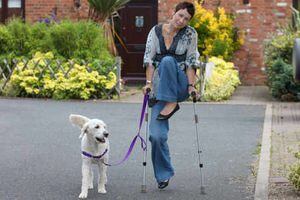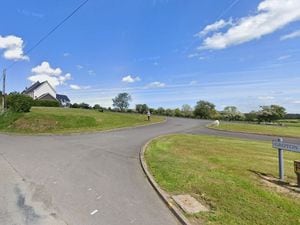Rare condition leaves Joanne with 'flamingo leg'
A woman has been condemned to a life standing on one leg because of a rare neurological condition. Joanne Day, of Weston under Lizard, on the Shropshire-Staffordshire border, suffers from dystonia.

A woman has been condemned to a life standing on one leg because of a rare neurological condition. Joanne Day, of Weston under Lizard, on the Shropshire-Staffordshire border, suffers from dystonia.
She has suffered life-changing body contortions ever since a freak rollerskating accident as a teenager.
The latest contortion has seen her left leg cramp up towards her torso, leading some to dub her "The Flamingo Lady" because of her resulting stance.
She is thought to be the only person in the country with the "flamingo leg" form of the disorder. Dystonia is a rare disorder with no known cure which inflicts involuntary muscle contractions on different parts of the body.
Joanne's agonising and permanent leg position means she battles the condition 24 hours a day by walking everywhere on crutches.
The 36-year-old has ruled out an operation on her cramped leg as surgery could spread the muscle spasms to different parts of her body.
She said: "Often, people say to me 'Why are you standing like that? There are always the inevitable flamingo jokes and although, of course, they are upsetting at times I try to keep a sense of humour, Laughter is how I've got through a lot of things."
Joanne enjoyed a normal childhood until the bizarre accident in November 1989 triggered the disease.
The contortions started when her left shoulder was forced up against her chin, making her constantly appear as though she is using a telephone.
Her shoulder contortions lasted two years before different forms of the disorder led to her flamingo stance three years ago.
Jo, who is single and a trained physiotherapist who works for the Dystonia Society, said her condition hurt incredibly and required morphine to dull the pain.
She added: "My condition has changed my life, but I still try to live it to the full as much as possible. I have a car and I live on my own. I love clothes, my dog and last year completed an MSc Physiotherapy."
With more than 40,000 people in the UK struggling with dystonia, Jo's case is one of the most severe.
Jo said: "Being disabled doesn't mean I can't do things, it just means I do them differently."
By Simon Hardy





